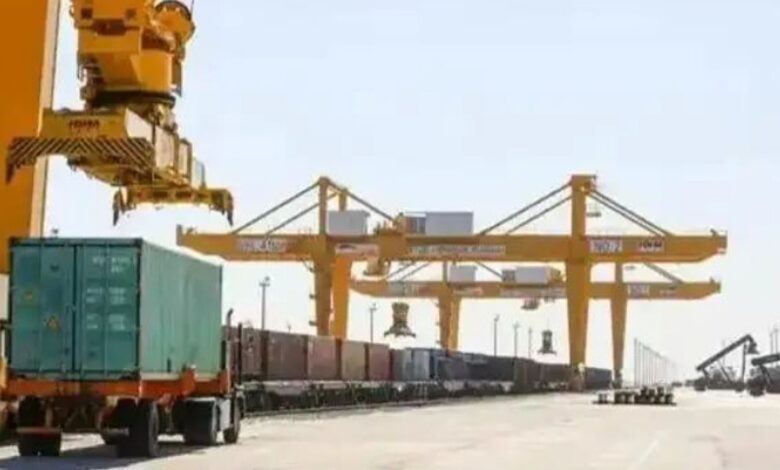Approval of the agreement with China; Kazakhstan’s new step in the development of the “Trans-Caspian” corridor

Kazakh President Kassem Jomart Tokayev approved the law “Approving the agreement between the government of the Republic of Kazakhstan and the government of the People’s Republic of China on the development of the Trans-Caspian international transport route, including container trains on the China-Europe route” in addition to the law “Approving the agreement between The government of the Republic of Kazakhstan and the government of the People’s Republic of China on international road transport also signed.
Middle Trans-Caspian Corridor is an initiative that seeks to connect Turkey to China through Georgia, Azerbaijan, the Caspian Sea and then Kazakhstan or Turkmenistan, Uzbekistan and Kyrgyzstan.
From Ankara’s point of view, the Middle Corridor is a very attractive trade route that not only connects this country directly with Eurasia, but also reduces the dependence of other Turkic countries in Central Asia and the Caucasus on Russia and Iran. Turkey’s main economic goal in launching the Middle Corridor Initiative is to create an alternative multimodal route that will connect Eurasian countries and enhance regional cooperation and coordination with transit countries along the Trans-Caspian International Route. The opening of the cargo transportation route between Azerbaijan and Turkey has not only completed the shortest railway corridor between China and Europe, but has also greatly increased the connection and access between Turkey and the countries of Central Asia and the South Caucasus. On the other hand, Turkey plans to attract and transfer at least 30% of the flow of goods transportation that passes through the northern corridor and Russian territory to the middle corridor by implementing various incentive plans. The country promotes and encourages this through bilateral, trilateral and multilateral initiatives that seek to take advantage of Turkey’s unique geographical location at the heart of the trade triangle of Europe, Asia and Africa.
In the beginning, Ankara’s work was not easy in convincing Central Asian countries to develop transport routes along the middle corridor; Mostly because of the asymmetric political and economic dependence of these countries on Russia. Therefore, the sanctions imposed against Russia after the annexation of Crimea to Russia in 2014 increased the interest of Central Asian countries to diversify their foreign relations and distance themselves from Moscow. At the same time, Moscow has lost its focus in the Central Asia and Caucasus region by entering the Ukraine crisis.
Ankara has also been more actively involved in multilateral initiatives such as the strengthening of the Organization of Turkic States (OTS) and the Trans-Caspian International Transport Route in order to advance its goals. The Organization of Turkic States has approved a cooperation protocol in the field of transportation development in 2013, and based on this protocol, it established a coordination council for the development of regional communications. Last year, the Turkic Cooperation Organization adopted Vision 2040, which seeks to integrate member countries into regional and global supply and value chains through the Trans-Caspian Corridor. The recent meeting of the foreign ministers of several Turkic-speaking countries in Central Asia and the Caucasus, which took place last week, can be studied in order to deepen and operationalize this vision.
Turkey has also used the capabilities of the Trans-Caspian International Transport Route (TITR) to promote regional connectivity. TITR is a multilateral and multimodal transport association that connects Caspian and Black Sea ferry terminals with rail systems in China, Kazakhstan, Azerbaijan, Georgia, Turkey and Eastern Europe. This network connects the rail-container transport of China and the European Union.
Source: IRNA
| © | Webangah News Hub has translated this news from the source of Young Journalists Club |


